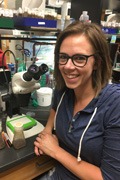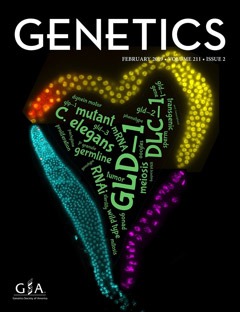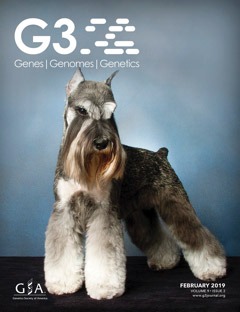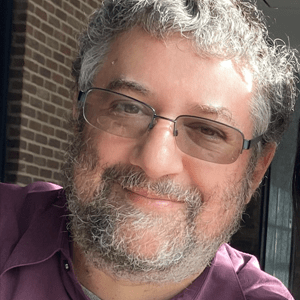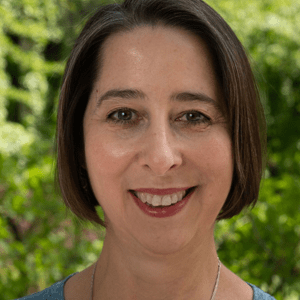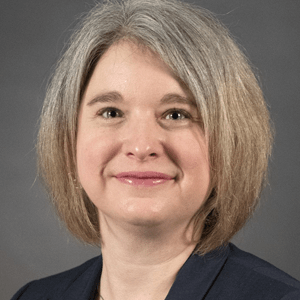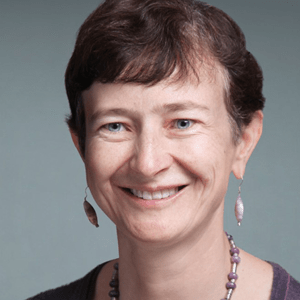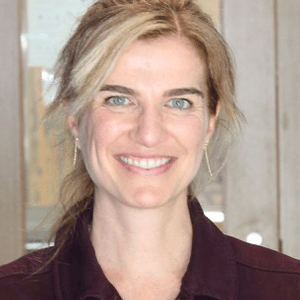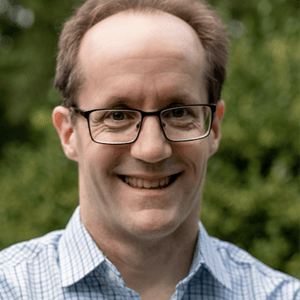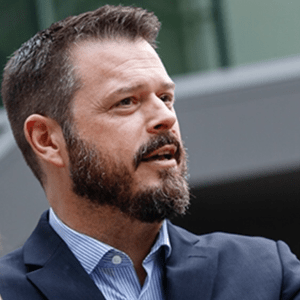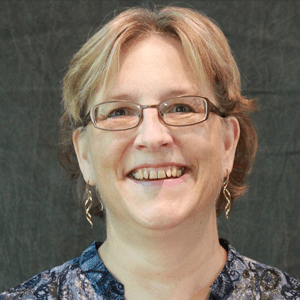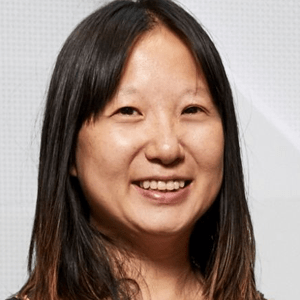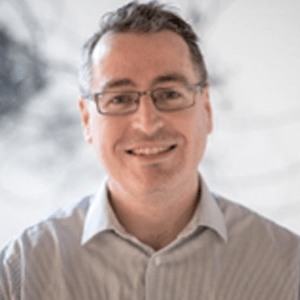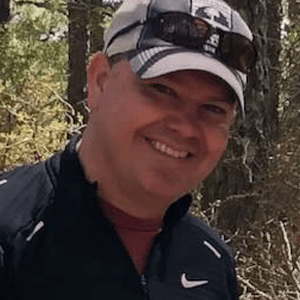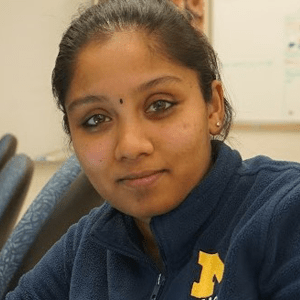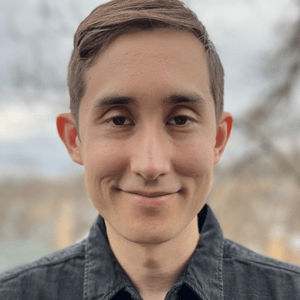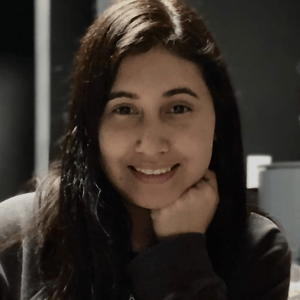2023 Fly Board Election Candidates and Ballot
To cast your vote, you will need to create an account or log in at the link below using an email address and password. This helps the Fly Board ensure a fair election. You do not need to have an active GSA membership to vote in the election.
- View the Candidates’ statements
- Click Access Ballot below
- Click Login in the upper right corner to log into your account
- Click on More under the heading “2023 Fly Board Election”
- Click Apply
- Vote
- Click Mark as Complete
You will receive an email confirming your ballot has been submitted (please check the spam folder). If you have technical difficulties, email society@genetics-gsa.org.
Deadline to vote: January 23, 2023, 11:59 p.m. EST.
Candidate Statements and Biographical Information
Read each candidate’s statement and biographical information at the links below. Return to this list using the “Return to Top” links.
Representatives
Vote for one in each section
Northeast Region Representative
Mountain Region Representative
Australia/Oceania Representative
Primarily Undergraduate Institution Representative
Early Career Representative, postdoc
Early Career Representative, graduate student
Marc Halfon
Professor, University at Buffalo Jacobs School of Medicine & Biomedical Sciences
Candidacy Statement
I’ve worked with Drosophila for over 30 years. My experiences as an undergraduate in Fotis Kafatos’s lab at Harvard introduced me to the incredible power of Drosophila as a research organism and to the welcoming community of fly researchers. Over the years my conviction has grown that there is no better confluence of organism, community, resources, and breadth of research questions than what we find with Drosophila.
I am continually struck by the diversity of scientific questions addressed by the fly community. My own work has spanned the study of transcriptional mechanisms during oogenesis (undergraduate), to neuromuscular development (Ph.D. with Haig Keshishian at Yale), and to cell fate specification during muscle development (postdoc with Alan Michelson at Harvard). When the Drosophila genome was sequenced in 2000, I retrained in bioinformatics so I could take advantage of this powerful new resource. My laboratory at the University at Buffalo has helped pioneer methods for the computational identification of enhancers, and we use these methods to study questions of gene regulatory network evolution in flies and other insects, as well as continuing our studies of enhancer function and signal integration during Drosophila embryogenesis.
The fly community’s century-old tradition of openness, collegiality, and inclusiveness is unparalleled. It’s important that we maintain these values and continue our efforts to include marginalized groups. Our values are directly reflected in the extensive and freely-shared resources—the Bloomington stock center, FlyBase, the Gene Disruption Project, the DGRC, etc.—that boost the ability of the entire community to conduct ground-breaking research. I developed and maintain REDfly, a database of Drosophila enhancers. Through this effort we have annotated almost 40,000 validated enhancers and have contributed the bulk of the regulatory data contained in the FlyBase-maintained genome annotation.
My experiences as both a user and developer of community resources have taught me how difficult it is to keep these tools well-funded. FlyBase and other resources are experiencing steep funding cuts, imperiling their ability to remain current and provide the services on which we all rely. It’s essential that we advocate for robust support of these critical resources and to make the case for the huge return-on-investment provided by model-organism research. My experience with a broad array of funding bodies, including NIH, NSF, and USDA, positions me well to aid in this effort.
The past several years have been a time of changes and challenges for scientists. We celebrated the triumphs of both basic and applied research in the response to the COVID19 pandemic, but also witnessed deep denialism of scientific facts among segments of the population. Education and public outreach must remain an important part of our collective mission.
When the Fly Meeting resumed in person last spring after a two-year hiatus, the sense of joy was palpable. This is truly a special community, and I can think of no better way to contribute and to give back than to represent all of you as President of the Fly Board. It would be a privilege and an honor to serve.
Sally Horne-Badinovac
Professor, University of Chicago
Candidacy Statement
My scientific journey began in the zebrafish community, first as an undergraduate researcher with John Postlethwait at the University of Oregon and then as a graduate student with Didier Stainier at University of California, San Francisco. In the Stainier lab, I became fascinated with how the collective behaviors of epithelial cells shape tissues and organs during development. Consequently, I spent much of my time reading papers from fly labs where the best epithelial work was (and still is) being done. I marveled at the tools and resources that had been built by fly researchers and the deep scientific insights they revealed. When it came time to choose a postdoctoral lab, I knew that this was the type of work I wanted to do. I joined David Bilder’s lab at UC Berkeley and became an active and highly enthusiastic member of the vibrant fly community I had admired from afar. Since starting my lab at the University of Chicago in 2008, my team has studied how epithelial cells coordinate their movements for collective migration and how this motion synergizes with new protein secretion to build a highly structured extracellular matrix that directs organ morphogenesis.
Science is a social endeavor, and the impact of the work from our individual labs depends heavily on the resources that the wider community provides. I have worked to support and strengthen our scientific community on multiple fronts. I co-organized both the Fly Meeting and the Santa Cruz Developmental Biology Meeting in 2022, and I was elected to be Chair of the Directed Cell Migration Gordon Conference in 2025. I am on the Editorial Board for Development and work as an Associate Editor for Cells & Development. Finally, I have been a faculty member in the Embryology Course at the Marine Biological Laboratory, and I am co-director of University of Chicago’s T32 Training Program in Developmental Biology. As Fly Board President, I would advocate for increased funding for model organism databases and labs, seek to recruit young researchers to the field, and strive to make the fly community an even more inclusive and welcoming place to do research.
Tina Tootle
Professor, University of Iowa Carver College of Medicine
Candidacy Statement
Tina Tootle received her BS in Microbiology from the University of Maryland, College Park (1998), where she earned High Honors for her thesis studying plant-pathogen interactions in Arabidopsis thaliana. She then served as a research assistant in the laboratory of Soichi Tanda, where she fell in love with Drosophila as a model system. Tina studied Ras/MAPK signaling and the Retinal Determination Network in Drosophila during her graduate studies with Ilaria Rebay at the Massachusetts Institute of Technology (1999-2004). As a postdoctoral fellow with Allan Spradling at the Carnegie Institution for Science in Baltimore, she began her studies on prostaglandin signaling (2004-2009). Since starting her own lab at the University of Iowa in 2009, Tina has focused on understanding how prostaglandins regulate the actin cytoskeleton to control Drosophila follicle or egg chamber morphogenesis. These studies have led her to exam the roles of actin and actin binding proteins in the nucleus.
Tina has been active in graduate training and diversity, equity, and inclusivity work. She co-developed and served as the Director of the Cell and Developmental Biology Graduate Program from 2017-2022. She teaches graduate level Principles in Molecular and Cellular Biology and. Tina also served as the departmental Director of Diversity and the Chair of the Basic Sciences Diversity Taskforce from 2014-2021. She is active in outreach and uses these programs to both increase the diversity of individual pursuing biology-related creases and increase appreciation for the value of using Drosophila for biomedical research.
Tina has also been an active participant in the scientific community. She has served as part of the organizing committee for the Midwest Drosophila Research Conference, the Midwest Representative to the FlyBoard from 2018-2021, and numerous FlyBoard Committees including the Election Committee and the Trainee Awards Committee. She is currently on the Drosophila Image Awards Committee. Tina is an associate editor at Genetics and serves on the GSA Publications Committee. She is the co-editor of the Springer Nature, Methods in Molecular Biology: Drosophila oogenesis book that will be published in early 2023. She also serves on both NSF (MCB) and NIH study sections. Tina is dedicated to improving biological education to better prepare students for the array of career options, increasing the diversity of students pursuing degrees and careers in biological sciences, and being an advocate for model organism research.
Jessica Treisman
Professor, New York University Grossman School of Medicine
Candidacy Statement
Jessica Treisman was born in Oxford, England, and grew up there and in Vancouver, Canada before returning to Oxford University for her BA, where she fell in love with flies after reading early papers by Lawrence, Morata and Garcia-Bellido about clonal analysis. She moved to New York in 1985 to do her PhD in Claude Desplan’s lab at Rockefeller University, where she studied how transcription factors pattern the Drosophila embryo. She continued in flies for her postdoctoral research in Gerry Rubin’s lab at UC Berkeley, where she studied genes that affect patterning, cell division and cell shape in eye development. In 1996 she started her own lab in the Skirball Institute and Department of Cell Biology at NYU School of Medicine, where she is now a Professor and director of the graduate program in Developmental Genetics. Her lab has used the eye and wing imaginal discs and the visual system to study the molecular mechanisms of cell-cell signaling, cell fate determination, and synapse formation. Fly genetic screens have taken her into many interesting areas of biology, and she enjoys the challenge of constantly learning about new fields. Jessica was a co-organizer of the 2007 fly meeting in Philadelphia, and served on the organizing committee for the Crete meeting from 2012-2016 and as mid-Atlantic representative on the Drosophila Board from 2013-2016. She was Treasurer for the Harvey Society from 2010-2013, and has been the Fly Board Treasurer for the last three years. During this time, a new outreach award to promote diversity, equity and inclusion among Drosophila trainees was approved by the Board, and Jessica chaired a committee to oversee its distribution. She would be happy to serve another term in this role.
Barbara Mellone
Professor, University of Connecticut, Storrs
Candidacy Statement
I am a Professor in the Genetics and Genomics division of the Molecular and Cell Biology Department at the University of Connecticut, Storrs. The goal of my research program is to understand the molecular mechanisms underlying genome organization and inheritance. We focus primarily on the centromere, an essential chromosomal locus that mediates accurate chromosome segregation during mitosis and meiosis. Since its inception in 2009, my laboratory has elucidated key aspects of centromere assembly, DNA sequence composition, and evolution, while further enhancing D. melanogaster as a powerful model system for centromere biology.
My passion for chromosomes and genome inheritance started when I was an undergraduate student at the University of Milano, Italy, where I worked on budding yeast DNA replication. I left my home country to pursue a PhD with Robin Allshire at the MRC Human Genetics Unit in Edinburgh, Scotland, studying pericentric and centromeric chromatin in fission yeast. After completing my PhD, I became very interested in how centromeres are specified and decided to pursue this exciting question in Drosophila, because of its complex chromosomes and myriad of molecular tools. As a postdoc with Gary Karpen at University of California, Berkeley, I identified key centromere chromatin effectors at a time when little was known about the mechanisms of centromere chromatin formation in any organism. Since starting my position as an independent investigator, my lab’s efforts resulted in several discoveries, including the identification of the chaperone that recognizes and deposits the essential centromeric histone CENP-A. My early independent work was recognized by the American Society of Cell Biology Women in Cell Biology “Junior Award for Excellence in Research”. A recent contribution I would like to highlight is the discovery, through a collaborative effort, of the sequences and chromatin organization of all Drosophila centromeres. This work fundamentally shifted previous assumptions about the sequence composition of centromeres and generated the first reference to include annotated centromeres.
Since adopting Drosophila as my model organism of choice, I have been a regular attendee of the Drosophila Research Conference and was an invited plenary speaker in 2019. I was also a member of the GSA Larry Sandler Award committee in 2018 and 2019 and the chair in 2020. As chair, I introduced a new format for the letter of nomination for this award to the board in an effort to reduce bias, which was adopted and has been used since. During the height of the pandemic, I organized multiple virtual meetings in an effort to provide presentation opportunities for trainees.
In all of my professional endeavors, I strive to improve diversity and equity in science and academia and make every effort to combat discrimination and bias. I am passionate about mentoring students from historically underrepresented groups and have hosted several high school and undergraduate scholars through programs at my university for students from historically excluded groups in STEM fields. I am an ASCB MOSAIC mentor, I am very active in my department’s diversity, equity, and inclusion committee, and other organizations and task forces at my institution.
Over the years, I have greatly benefited from the generosity and collegiality of the fly community. I am excited at the prospect to serve the community as Northeast regional representative to the Fly Board.
James Walker
Assistant Professor, Harvard Medical School
Candidacy Statement
I am dedicated to harnessing the potential of Drosophila models to improve patient outcomes associated with neurological disease. I am an Assistant Professor in the Center for Genomic Medicine, Massachusetts General Hospital (MGH) and Harvard Medical School. My lab utilizes Drosophila as a model system to study neurological diseases, both to elucidate pathogenic mechanisms and to develop potential therapeutic strategies. I adopted Drosophila as my model organism of choice, after my PhD at Cambridge University. While studying the regulation of the cell cycle in the eggs of Xenopus and marine organism gave me a solid foundation in biochemistry and molecular biology, I recognized the immense power of fly genetics while attending seminars in the neighboring Department of Genetics. For my postdoc, I worked with both Iswar Hariharan and Andre Bernards at MGH to develop fly models of neurofibromatosis (NF). I had the opportunity to lead my own lab at MGH in 2016, and continue to use flies to study NF, in addition to other neurological disorders. I have been particularly grateful for the successful and productive interdisciplinary collaborations my lab has with clinicians, chemists, and human geneticists, using fly biology to add new dimensions to other biomedical projects.
I have incorporated Drosophila into my practical classes while teaching at Harvard College and am always heartened by how readily students see the advantages of using flies in research. As a faculty member, I seek to enhance diversity, equity and inclusion in both the classroom and the laboratory. I am passionate about mentoring the next generation of researchers and several Research Technicians who have worked in my lab have gone on to graduate studies and joined Drosophila labs. My lab has an active outreach program, organizing educational programs for local disease foundations in which lab members explain the usefulness of Drosophila as a model for studying human diseases, as well as participating in hospital open days when we welcome patients and families into our Fly Room to view first-hand our model system.
I am one of the founding members of the Boston Area Drosophila Meeting. Since 2016 we have organized an annual event at different universities and colleges in the greater Boston area, bringing together Drosophila researchers from different institutions to share their latest findings and expertise. We focus on encouraging post-docs, students, and technicians to give presentations in a friendly atmosphere to highlight their research. The all-day programs include poster sessions and breakout groups during which junior researchers meet with faculty and the meetings have resulted in multiple collaborations between different labs and institutions. This has been particularly instrumental in enabling new faculty from smaller teaching colleges in Massachusetts to connect with established investigators in and around Boston. The most recent meetings have attracted participants from across New England, including New Hampshire, Connecticut, and even New York.
As a member of the Fly Board, I would be able to draw upon my networking skills and connections in the Drosophila community of the Northeast states. My goals would be to encourage greater inclusion of all institutions and viewpoints, to continue to advocate for the importance of fly research in biomedical research to disease foundations and the public and seek new ways of attracting young investigators to the field.
Marc Freeman
Director and Senior Scientist, Vollum Institute, Oregon Health and Sciences University
Candidacy Statement
I have worked with Drosophila my entire career, beginning in John Carlson’s laboratory (olfaction), then in Chris Doe’s (embryonic neurogenesis) and on my own since 2003. We study glial cell development and function, and neuron-glia interactions in the developing and mature nervous system. In 2008 we started working with mouse models also, but quickly realized that was silly—they are too slow, too expensive, questions are answered there with far less precision, and there are countless exciting questions left to answer in flies, so we abandoned that idea. Now we just try to make friends with good mouse colleagues and synergize with them. Our group combines classical forward genetic screens and genetic mosaic approaches with all the wonderful cutting-edge tools the fly community generates.
Laurel Raftery
Professor, University of Nevada, Las Vegas
Candidacy Statement
I became convinced of the power of flies as system to discover the unknown, when I read Nüsslein-Volhard and Wieschaus’s seminal 1980 paper describing the classes of genes that control segmentation. I was a graduate student at the University of Colorado, Boulder, using bacterial genetics to study translational accuracy at that time, and switched to Drosophila genetics as a postdoctoral fellow with William Gelbart at Harvard. There we used maternal effect modifier screens to identify genes required for signal transduction by a fly Bone Morphogenetic Protein, most notably identifying the founding member of the Smad protein family, Mad. Surprisingly, my work on Drosophila BMP signaling led to my first faculty position at the Cutaneous Biology Research Center of Massachusetts General Hospital/Harvard Medical School. Working with flies, my lab could follow the surprises we uncovered, moving ultimately to investigate BMP signaling in morphogenesis of the fly ovarian follicular epithelium. During the years my lab was in a teaching hospital, I became convinced in the importance of undergraduate education as providing foundational knowledge for our future healthcare providers and for all voters in the US. I left Boston to return to the US intermountain West, where I had spent my youth and years of graduate education. I am now a Professor at the University of Nevada, Las Vegas, where I teach Developmental Biology to first generation college students, train undergraduate research volunteers in my lab, and mentor graduate students who were themselves first generation college students. I was a founder of Science Café Las Vegas, which brings local scientists to discuss science with members of the broader Las Vegas community. I have attended the Drosophila Research Conference nearly every year since beginning my post-doc, and I was co-Organizer for the 39th ADRC in 1998. I have also organized a regional Society for Developmental Biology in 2002, and I served on the FASEB Scientific Advisory Committee for the Summer Research Conferences from 2010–2021.
As funding for model system community resources has dwindled, the role of the Fly Board has grown as a voice for the Drosophila community, particularly in defining community-wide priorities for resources such as Flybase. If I am elected to the Fly Board, my role of representing a segment of the fly community would be central. I will advocate for affordable and accessible locations for the fly meeting, so that we can continue to attract international attendees from all continents and to send undergraduate and graduate students to present their research to an international audience. With new methodologies, there will come opportunities for new genome-wide resource development, again challenging the Fly Board to fairly represent the wishes of the research community. I would be proud to serve as regional representative.
Louise Cheng
Associate Professor, Peter MacCallum Cancer Center
Candidacy Statement
I grew up in Nanjing, China, and received my undergraduate degree in Sydney, Australia. I fell in love with Developmental Biology during an exchange year at Kings College London. This prompted me to first work as a research assistant in the lab of Patrick Tam at the Children’s Medical Research Institute in Sydney in the field of mouse gastrulation and then to work on chick somite development during my PhD studies at Kings College London in the lab of Suzanne Dietrich. For my postdoctoral studies, I changed model organisms, and worked on Drosophila neuroblast proliferation in the lab of Alex Gould at the National Institute for Medical Research. Drosophila really suited my temperament, as it allowed me to test multiple ideas simultaneously and quickly.
I moved back to Australia to set up my independent laboratory at the Peter MacCallum Cancer Center in 2012, a research institute embedded within a cancer hospital. My lab studies growth, nutrition, and organ size control using Drosophila and patient samples. We are interested in understanding how the microenvironment influences the growth of tumors and how neuronal cell identity is maintained in the developing CNS to inhibit dedifferentiation, a process implicated both in regeneration and in cancer. More recently, we have become interested in cancer cachexia, a metabolic syndrome affecting around 30 percent of cancer patients and 80 percent of late cancer patients, where tumors induce the wasting of muscle and fat. We have coupled genetic studies in flies with validation studies in matched tumor/adipose/muscle samples from cancer patients, to discover conserved mediators of this disease.
I have served on the board of the Asia-Pacific Drosophila Research Conference since 2019. Along with my co-organisers, we are putting together an exciting program for APDRC6 in Cairns, Australia (July 23-27, 2023), which involves a great scientific program, as well as an outreach program for school students. I am the co-program head for the Australian Transgenic Drosophila Center, and I have co-organised the Australian Fly Meeting from 2018 to 2020. I serve on the editorial board of four scientific journals. I am passionate about science outreach, and I have been involved in advocating for basic research and increasing science education in general (to school students and the general public). As a Fly Board member, I will continue to advocate for these causes close to my heart, both through my connections within the Drosophila community in Australia, as well as through my contact with patients through my clinical links.
Travis Johnson
Lecturer and Group Leader, Monash University
Candidacy Statement
I am excited to have this opportunity to serve the international Drosophila community. Despite being a junior group leader, I have been involved in Drosophila research for over 20 years – from humble beginnings as a fly bottle washer to recently starting my own group in 2018 at Monash University in Melbourne, Australia. I obtained a PhD in 2010 studying the molecular and population genetics of thermotolerance adaptation in wild Drosophila, then moved into developmental genetics and cell signalling as a postdoc with Coral Warr. We investigated spatial control mechanisms in embryonic patterning and chased several genes across a variety of other tissues and life-stages. My lab now continues this work and has further expanded to studying cell signalling in blood cell fate, as well as applying Drosophila as a disease model for both treatment exploration and understanding pathogenesis.
Down here in Oceania and Australia, we face many diverse challenges in our fly research, such as the large distances between our groups and difficulties importing strains, among others. With this role I am determined to find ways to minimise the burden of these issues, in part by connecting and working with other continents with similar challenges. I will also seek to further galvanise our region’s growing and changing fly community – which I believe is particularly important as we emerge post-Covid. Using the close ties I have with many of the fly groups in our region and with my enthusiasm for fly advocacy, I hope to give back to the community that has been so kind to me over the years.
Ruth Johnson
Associate Professor, Wesleyan University
Candidacy Statement
After completing an undergraduate degree at a 27,000 student PUI in South Africa, a PhD at an R-1 equivalent institution in the UK and postdocs at two medical schools in the US, I chose to establish a research group at a PUI and embrace a ‘teacher-scholar’ PI model because I adore the vibrancy and ‘potential energy’ of undergraduate students. I am an Associate Professor of Biology at Wesleyan University in Connecticut, and my research group uses the fly eye as a model to elucidate the conserved mechanisms that organize cells to correctly shape an organ. I couldn’t imagine doing this work with another model organism: the genetic tools and reagents developed by our fly community, coupled with the sharing-philosophy of our community, make the fly an accessible model, especially to scientists with limited resources. Like many of my fly-pushing peers at PUIs, I find that there are few biology concepts that we teach in our classrooms that we cannot bring alive with examples from Drosophila research, and the research experience undergraduates gain in our PUI labs provides them with inspiration, confidence, and foundational tools that can be applied to multiple science (and other) career tracks. I’m always delighted by what I learn from undergraduate students. They can be our ‘fingers on the pulse’ on societal issues that our Drosophila community should take note of. For example, my undergrads challenged my complacency on diversity, and challenged my notion of gender, many years before these became mainstream topics of discussion. Further, our undergrads remind us to use our taxpayer-backed funding effectively and with the future and their generation in mind. The rewards of teaching and training undergraduates at non-R1 institutions can, however, be coupled with challenges: lower funding, less sophisticated equipment, shorter-term research teams, and varied demands on our time can dampen our publication metrics, and these challenges require PIs at RUIs to be resourceful and bold. As PUI representative to the Fly Board my goal will be to represent these challenges and promote the joy and success of our undergraduates and PUI-PIs within our Drosophila community.
Matthew Wawersik
Associate Professor, College of William and Mary
Candidacy Statement
It is an honor to be nominated as Fly Board representative for Primarily Undergraduate Institutions. I am an Associate Professor of Biology at the College of William & Mary, a public liberal arts research college in Williamsburg, Virginia. I have been an active member of the Drosophila research community for >20 years beginning with a post-doc in Mark Van Doren’s lab at Johns Hopkins University. My lab’s current research focuses on understanding mechanisms of stem cell development and homeostasis, using Drosophila testes as a model system. This work is conducted by teams of undergraduate and master’s students, who have greatly benefited from thoughtful advice from our nurturing community over the years. In addition to conducting research that provides a training-ground for our next generation of scientists, I am also engaged in science education research through the Genomics Education Partnership that is focused on understanding best practices for implementation of course-based undergraduate research experiences (CUREs), as well as expanding the network of students gaining research exposure through these genomics CUREs.
I am indebted to the Drosophila research community for providing so many experiences that have benefited my career and the careers of the many undergraduate and master’s students that I teach and mentor. These opportunities include oral presentations given by my undergraduate students at PUI platform sessions, the ability to network with other PUI faculty engaged in science education research, and of course, the opportunity to share our lab’s research findings with the broader scientific community. For many of my undergraduates, the Fly Meeting has provided the first opportunity to discuss their work on a national stage, and the fly community never fails to provide rigorous, yet supportive, feedback.
As PUI representative to the Fly Board, I would be committed to ensuring continuance of the opportunities that have been so beneficial to me and my students. In particular, I would work to support and highlight opportunities for undergraduate researchers to present and gain feedback from a range of faculty in our community. Maintaining opportunities for faculty and aspiring teacher-scholars to share their research and experiences in science education would also be a focus. Finally, it is critical that students with more limited means have knowledge of and access to travel grants necessary for them to gain exposure to research as a career.
I look forward to the chance to give back to our community as a member of the Fly Board!
Shyama Nandakumar
Postdoc, Cornell University
Candidacy Statement
I am writing to express my interest in serving as the postdoctoral trainee representative on the Fly Board. I am currently a postdoctoral associate in the lab of Nicolas Buchon at Cornell University. I graduated with a PhD from the University of Michigan in 2020, where I was advised by Laura Buttitta in the department of Molecular, Cellular and Developmental biology (MCDB)—a vibrant department which focuses strongly on basic biology research using model organisms where I was first introduced to Drosophila melanogaster as a model organism. I completed my undergraduate education in India at SRM university, during which I spent two semesters abroad to gain research experience: one in Sweden at Umea University and another (my Bachelor thesis work) at Brigham and Women’s Hospital in Boston. My long term career goal is to return to India to run an independent research program at an academic research institution, using primarily Drosophila.
In addition to my broad interest in science, throughout my education, I have taken service seriously and have always taken an active role in engaging with the wider scientific community. In my years as a junior graduate student, I became involved with the departmental student council, and I was instrumental in organizing a peer mentorship program named GradGab which paired incoming graduate students with a more experienced student mentor to ensure that incoming students have a support system while they navigate the transition into graduate school. I also served as the International student representative on MCDB’s Admissions committee for two years. As the Vice President and later President of the MCDB student council, I organized several years of the departmental recruitment events for both the traditional PhD program and the Pathways Masters program. I also served as the graduate student representative on the MCDB Faculty search committee for the 2018-2019 academic year. In addition to departmental service, as a Barbour Scholar, I served on several panels for Rackham Graduate School’s outreach initiatives. I have also organized and participated in scientific outreach initiatives such as University of Michigan’s FEMMES (Females Excelling More in Mathematics Engineering and the Sciences) and events at the Ann Arbor Hands On Museum where I have taught children basic cell biology and fruit fly genetics. More recently I have participated in organizing Cornell’s department of entomology’s annual event ‘Insectapalooza’—an event which showcases arthropod research to the public. I strongly believe that outreach activities like these are crucial to shaping and influencing the public perception of science, and current times highlight the importance of this more than ever. I have also become engaged with the broader scientific community by organizing conferences and meetings. As a graduate student, I was elected to chair the Gordon Research Seminar on cell growth and regulation for 2021 (delayed due to pandemic to 2023). As a postdoc, I am also part of the organizing committee for the first international conference on polyploidy across the tree of life—a conference intended to bring together researchers using diverse model and non-model organisms to study whole genome duplication, which will also be held in 2023. At Cornell, I have also helped organize the monthly intra-mural meeting of Drosophila researchers named ‘Superfly’.
Throughout my higher education, and particularly since I began working with flies, I have found that having a supportive network of colleagues is crucial to trainees’ success, and I strongly believe in contributing to this by building a sense of community at multiple levels. Drosophila are one of the most accessible and successfully used model organisms for many reasons, including the tight-knit body of scientists who build resources that the entire community can benefit from. The ramifications of the COVID-19 pandemic and many other ongoing issues that directly impact the lives and careers of graduate students and postdocs have made it clear that advocating for trainees’ needs are critical for the career development and ultimate success of future generations of scientists. As an international trainee with scientific experience across three continents, as well as my commitment to service, I believe I am uniquely qualified for this position. I will strive to be a vocal and effective representative for postdoctoral trainees on the Fly Board.
Gavin Rice
Postdoc, University of Pittsburgh
Candidacy Statement
I am a postdoc at the University of Pittsburgh studying the evolution of genetic networks and its role in the generation of novel traits in Drosophila. I am honored to be nominated to be a postdoctoral representative for the Fly Board. I deeply care for our community of Drosophila researchers and advocate for early career researchers.
My love of Drosophila has always been tied to the amazing scientists that make up the fly community. My first scientific conference was the Drosophila Research Conference. As a second-year graduate student I was captivated by how every talk, even in fields well outside my own, felt connected to my work through the genetic techniques that we use. Beyond that I was astonished by how friendly everyone was and how willing they were to share insights and resources. This friendly community was especially important to me as I have a speech disability known as a stutter. My disability has made it difficult for me to both share my research and engage others about theirs during my early career in graduate school. The Drosophila community has been relentlessly encouraging in my career, giving me opportunities to present my work and find collaborators that share a passion for building shared resources.
I have taken this community mindset to my work with the Genetics Society of America. I have served as an early career representative to the GSA Board of Directors as well as co-chair of the Steering Committee of the GSA’s Early Career Leadership Program. As a co-chair I heard members say that they felt disconnected from the larger GSA organization. To address this, I worked with Dr. Jessica Vélez, our program manager, to set up short zoom meetings between Early Career Leadership Program members and the GSA Board. During these meetings Board members shared career advice on specific topics requested by the Early Career Leadership Program members. These meetings allowed ECLP members to feel seen by the Board and gave them a connection to those running the organization.
I have also worked locally at the University of Pittsburgh to connect postdocs to our faculty members. One initiative that I organized was to help postdocs receive feedback on their faculty applications. Postdocs, especially those that feel disconnected from a departmental community, can feel reluctant to ask for feedback from faculty they do not know personally. However, feedback from faculty outside of their immediate expertise can be vital in crafting a clear and engaging application. I also understood that faculty have heavy restraints on their time and that those that seem more approachable can be overwhelmed with requests for help. I organized a workshop where faculty volunteer to review job packets and are matched with postdocs in the department. This allowed faculty to volunteer to review the number of applications that they felt they had time for and allowed postdocs to receive feedback from, on average, three faculty members without feeling that they were burdening faculty. This program is in its second year and has received great feedback from both postdocs and faculty. I would be excited to support venues for early career researchers to feel valued and supported by senior members of our community as a postdoctoral representative to the Fly Board.
Maria Porter
Graduate Student, University of Mississippi
Candidacy Statement
I received my undergraduate degrees (B.S. in Biology and B.A. in Psychology)
from Converse College in South Carolina. My interest in working on a model system led
me to Gregg Roman’s lab at the University of Mississippi, where I am working on
understanding the role of circadian modulation of short-term olfactory learning in Drosophila melanogaster. My leadership roles have included serving in the Biology Graduate Student Society at the University of Mississippi starting in 2019. I started as the Activities Coordinator because I enjoy brainstorming events and seeing them come to fruition to unite members in essential discussions or fun events for everyone to enjoy. I was elected President in 2021, where I budgeted and was awarded over $2,500 for student activities, including an invited seminar speaker. I also spearheaded the revision and addition of several positions into the constitution to better serve the Biology Graduate Student members. This year, I decided to take a step back and run for Vice President to aid the new President and new officers in their positions while providing open communication between officers and members. My goal is to determine if there are any other modifications to current roles that may be needed and continue to listen to the biology graduate students in their needs to be successful in the graduate program. Furthermore, I have served as a University of Mississippi Graduate School Ambassador, where I had several duties to increase recruitment, including serving as an ambassador of the Biology Graduate Program. I have also participated in three hiring committees to assist in finding the best candidate for the position.
My involvement in the Drosophila community has involved sharing essential topics, papers, and methods through Twitter and making connections through this platform since the pandemic prevented travel or in-person gatherings for the last few years. I have connected with several Drosophilists this way and have enjoyed problem-solving collaboratively online. I have found that the Drosophila community is very welcoming and eager to help. Because of this, I felt confident to reach out to Drosophilists whenever I had a question and received timely and helpful suggestions. I am deeply thankful to Daniel Ranson, who helped me with my Drosophila brain imaging issues during the pandemic. I also met one of my collaborators, Chris Vecsey, this way and recently collaborated to have two protocols submitted to the Cold Spring Harbor’s second edition of Neurobiology: A Laboratory Manual. These protocols are for anyone interested in analyzing positional preference, sleep, and circadian parameters, using the Drosophila Activity Monitors (DAM) System. I hope the Drosophila community will find these protocols helpful.
I am interested in becoming the graduate student representative because I believe this position will further allow me to connect with Drosophilists worldwide. As I near the end of my PhD program, I would like to foster more connections since I enjoy collaborating and learning about other researchers’ projects. In this position, I hope to address and improve any graduate student concerns in the Drosophila community while fostering communication between all Drosophilists, from high school students to retired researchers. In this way, I hope to make a change for the better in our community and provide everyone with lasting connections. Thank you for the opportunity.
Shefali Shefali
Graduate Student, University of Indiana
Candidacy Statement
I grew up in Patna, a small city in India. I moved to Kolkata to pursue my undergraduate degree in Biochemical Engineering (2016-2020) from Jadavpur University, which is one of the premier universities in India. My first-year coursework initiated my fascination towards biological research. Acting on my nascent interests, I did a few summer projects in some
labs at InStem, a premier Indian biological research institute. These experiences enhanced my
interests in the areas of developmental biology and inspired me to pursue graduate studies. Then, I applied for graduate school and moved to the US for my graduate studies at Indiana University, Bloomington. Currently, I am a third year PhD student in Jason Tennessen’s lab. I am working on understanding how the cross-talk between glucose metabolism and growth signaling affects fly development.
During my undergraduate days, I was strongly involved in several aspects of community building at my engineering school. I served as a member of organizing committees for various technical-fests and cultural events. Moreover, I was an active member of educational groups which provide curiosity-driven education in Indian rural areas. While I was pursuing these roles, I began to understand the strengths of creating collaborative platforms for scientific problem solving. When I started my graduate school at University of Indiana, I acted on these ideas and discovered my interests toward creating a diverse and inclusive environment. During my graduate studies at the Tennessen lab, I have tried to integrate equity in all aspects of my work—from research training to teaching assignments. In my department, I have worked toward starting a Biology International student organization to create a welcoming workplace for international graduate students by organizing orientation events and other community building events like picnics.
It would be a great honor to serve as the graduate student representative for the Fly Board. I am excited for the opportunity to contribute toward creating an impactful platform to instill integrity and inclusion in fly science. To begin with, I would be interested in working toward equity in availability of fly-resources to trainees from diverse backgrounds and communities. I would also affirm my commitment toward equity by promoting transparent discussions on issues like lack of fellowships for international students, hiring biases, etc., to strengthen the intellectual diversity and core goals we have as scientists and educators. Since I am a graduate student from the COVID era, I have had limited opportunities for interacting with graduate students and professors from other universities. If selected, I would wish to focus on building strong connections among fly graduate students, so we can all communicate with each other—not only regarding research, but also other grad-life issues. I want to contribute to fostering engagement within the fly community by organizing grad-student monthly or bimonthly virtual hangouts. I hope these steps shall improve quality and application of research science. I strongly believe this position will serve as an important learning experience for me. I want to use this opportunity to learn about existing initiatives, work on new ideas with the global fly community and work toward creating a better scientific culture. I believe my experiences from my undergrad time and grad school have strongly prepared me for a shared vision for change.

